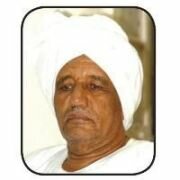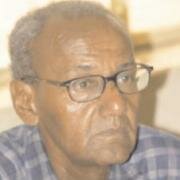But in its actual effects overseas, his version of “smart power” has been anything but smart
. It has maintained imperial overstretch at self-destructive expense, infuriated strategic competitors like China, hardened the position of adversaries like Iran and North Korea, and tried the patience of even long-time allies in Europe and Asia. Only one thing makes Obama’s policy look geopolitically smart – and that’s Mitt Romney’s prospective foreign policy. On global issues, then, the November elections will offer voters a particularly unpalatable choice: between a Democratic militarist and an even more over-the-top militaristic Republican, between Bush Lite all over again and Bush heavy, between dumb and dumber.
Mr. Softy went to Washington in 2008 and discovered a backbone. That, at least, is how many foreign policy analysts described the “maturation” process of the new president. “Barack Obama is a soft power president,” wrote the Financial Times’s Gideon Rachman in 2009. “But the world keeps asking him hard power questions.” According to this scenario, Obama made quiet overtures to North Korea, and Pyongyang responded by testing a nuclear weapon. The president went to Cairo and made an impressive speech in which he said, among other things, “we also know that military power alone is not going to solve the problems in Afghanistan and Pakistan.” But individuals and movements in the Muslim world -- al-Qaeda, the Taliban -- continued to challenge American power. The president made a bold move to throw his support behind nuclear abolition, but the nuclear lobby in the United States forced him to commit huge sums to modernizing the very nuclear complex he promised to negotiate out of existence.
According to this scenario, Obama came to Washington with a fistful of carrots to coax the world, nonviolently, in the direction of peace and justice. The world was not cooperative, and so, in practice, those carrots began to function more like orange-colored sticks. This view of Obama is fundamentally mistaken. Mr. Softy was a straw man created from the dreams of his dovish supporters and the nightmares of his hawkish opponents. That Obama avatar was useful during the primary and the general election campaign to appeal to a nation weary of eight years of cowboy globalism. Like a campaign advisor ill-suited to the bruising policy world of Washington, Mr. Softy didn’t survive the transition.
Consider, for example, Obama’s speech in Cairo in June 2009. This inspiring speech should have signaled a profound shift in U.S. policy toward the Muslim world. But what Obama didn’t mention in his speech was his earlier conversation with outgoing president George W. Bush in which he’d secretly agreed to continue two major Bush initiatives: the CIA’s unmanned drone air war in Pakistan’s tribal borderlands and the covert program to disrupt Iran’s nuclear program with computer viruses.
Obama didn’t just continue these programs; he amplified them. The result has been an unprecedented expansion of U.S. military power through unmanned drones in Pakistan and neighboring Afghanistan as well as Somalia and Yemen. The use of drones, and the civilian casualties they’ve caused, has in turn enflamed public opinion around the world, with the favorability rating of the United States under Obama in majority Muslim countries falling to a new low of 15% in 2012, lower, that is, than the rock-bottom standard set by the Bush administration. Modified from Tomdispatch
-
Periscope: Reflections on the Auditor General 2016 ReportNext >



